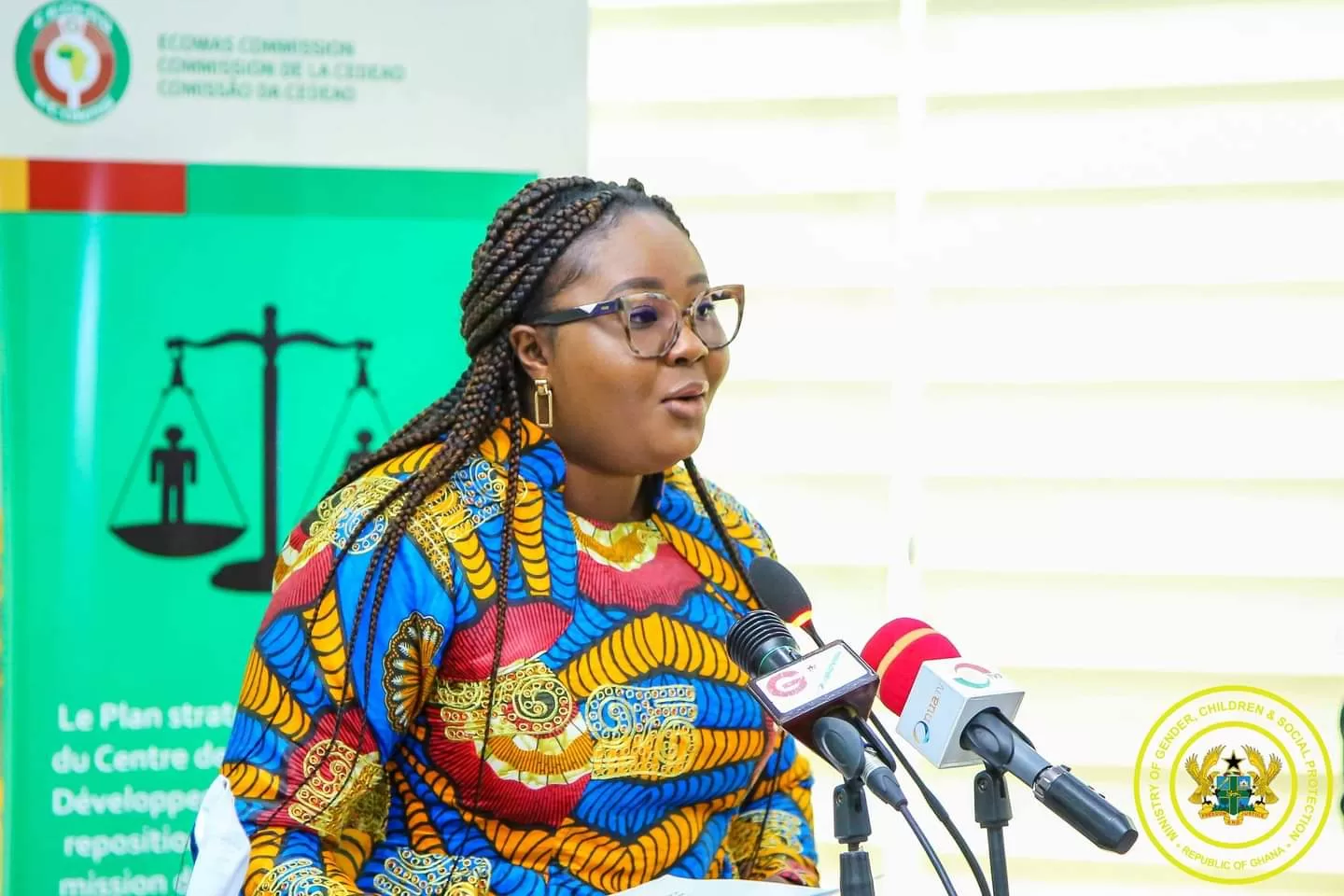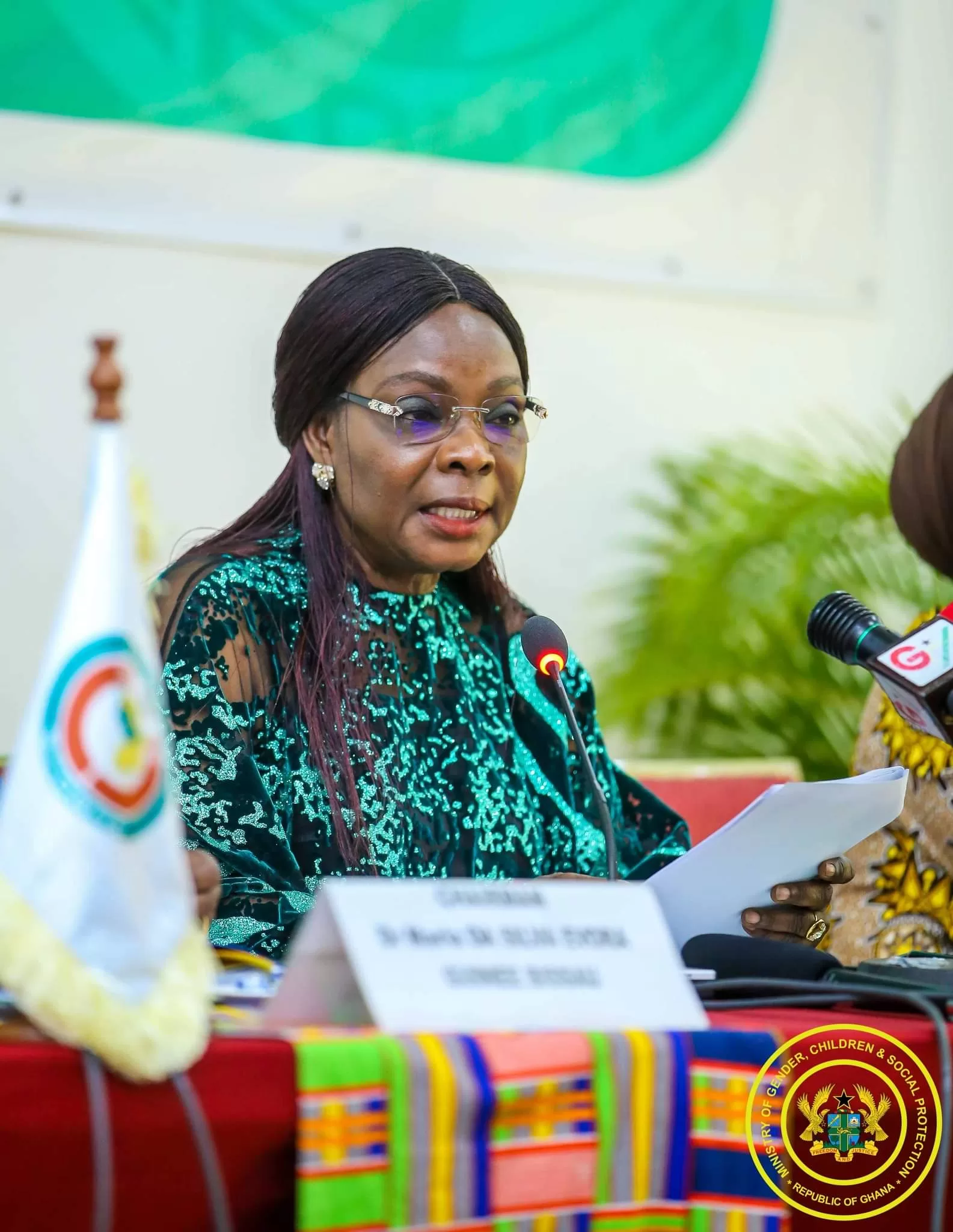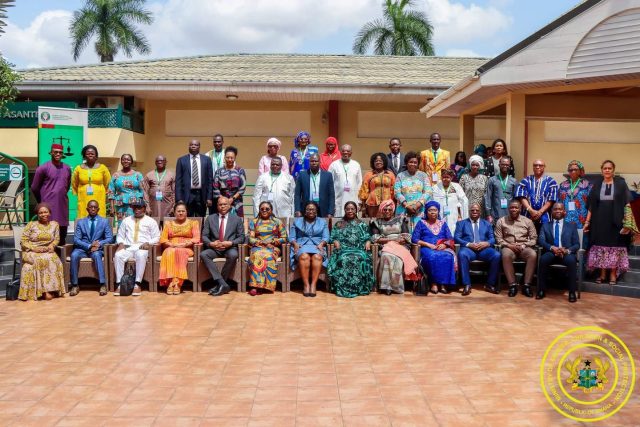By Rachel Kakraba
Deputy Minister of Gender, Children and Social Protection, Mrs. Francisca Oteng Mensah, has commended the ECOWAS Gender Development Centre, EGDC, for mobilizing and empowering women to be active participants in the regional integration process. She noted that the Centre since its establishment in 2003, has been instrumental in liaising with member countries for the implementation of Gender-sensitive policies as well as training and capacity-building programmes.
This, she said, has ensured issues bordering on gender equality and women empowerment are brought to the front burner.
“The four pillars of the strategic plan which includes EGDC governance system, legal and political frameworks, economic empowerment and empowerment of women and girls and partnership for funding initiatives to promote gender equality are solid blocks to build on the foundations of gender equality, laid in the sub-region over the years for sustainable development and it is highly commendable I must say”

Mrs. Oteng Mensah was speaking at a validation workshop of ECOWAS Gender Ministers in Accra. The meeting was to review and adopt the ECOWAS Gender Development Centre, Strategic Plan 2023 – 2027. The plan is to promote gender equality, empower women and girls, accelerate economic and social development, and regional integration in West Africa. It is also to reposition the EGDC as a Centre of Excellence playing a leading role in creating an Africa where men and women have equal opportunity to participate, decide, control and benefit from all development initiatives. The Deputy Minister of Gender Children and Social Protection, Francisca Oteng Mensah, said national development hinges on gender equality and women empowerment which Ghana remains committed to.
“National development hinges on these two key elements: gender equality and women empowerment. As a country, our interest in these elements has been evident in both national and international commitments made over the years, the Sustainable Development Goals, the Convention on the Elimination of all forms of discrimination against women, the Beijing Platform for Action are part of the international commitment we have made in our quest to achieve gender equality”
Mrs. Oteng-Mensah said gender inequalities in the ECOWAS sub-region has contributed to widespread discrimination, social injustice and less economic progress. She stated the pillars of the five-year strategic plan will ensure sustainable development.
“Gender equality plays a critical role in achieving effective regional integration. It is an enabling factor for the full participation of women and girls in regional economic activities and decision-making processes without limitations”
She added, “a careful reflection on the theme beckons us to take a comprehensive approach that addresses the root cause of inequalities and discrimination. This includes investing in education and training, providing access to healthcare, ensuring equal pay for equal work, promoting women’s leadership and women entrepreneurship, political participation, eliminating gender-based violence and harmful practices”
Chairperson of the ECOWAS Gender Development Centre, Dr. Maria Da Silva Evora, said although the target set is over-ambitious the centre is poised to achieve some positive outcomes.
“The strategic plan is very ambitious and we know it covers about five years, so we are going to adopt it so that all the fifteen countries can implement it on the ground. We are aware that this will really improve the situation of women and the fundamental conditions that is for human survival and empowerment of women access to healthcare and what is very important that is gender equality”
The chairperson was hopeful that by 2027, each of the fifteen member countries would have achieved some sustainable gains with the implementation of the strategic plan.
Delivering a speech on behalf of the Minister of Foreign Affairs and Regional Integration, Director ECOWAS National office Ghana, Neematu Adam, said gender equality is not only a fundamental right but critical for a peaceful and prosperous society. She said the low numbers of women at national decision-making level must challenge ECOWAS member countries to continuously recommit to ensuring at least 30 percent of women representation in all levels of government.
“Given the low representation of women at national decision-making structures, member states should be urged to continuously recommit to ensuring at least 30 percent of women in all levels of government. Women in government positions should view women in private sectors and civil society as allies and forge more strategic and interdependent relationships that will enhance women’s ability to influence policies in member states”

She added “The centre should endeavour to develop practical and relevant public policy tools to advance more inclusive ways of women’s active participation in the socio-economic and governance spaces in member states, while also focusing on pathways for effective working collaborations with women’s groups to achieve the implementation of various international and regional protocols”
Madam Adam noted the strategic plan is comprehensive and timely which will aid the quest of member states to bridge the gender gap.
Commissioner Human Development and Social Affairs, ECOWAS Commission, Prof. Fatou Sow Sarr, expressed appreciation to member countries for the commitment to end challenges in the sub-region as a result of inequalities. She encouraged member countries to ensure the implementation of the strategic plan which will promote gender mainstreaming.















